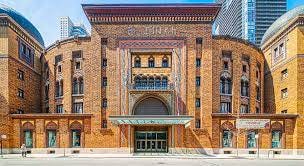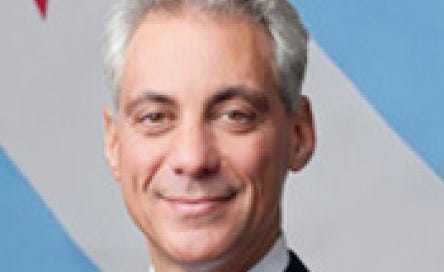Johnson can favorably impact Chicago's future
The mayor needs to avoid the lure of the shiny objects
The recent news that the Bally’s temporary casino at the former Medinah Temple is missing its revenue projections and is resorting to gimmicks such as being open 24 hours. providing limited free parking, and shuttles from Chinatown all to attract gamblers should send a signal to Mayor Brandon Johnson to direct his legal department to quietly look into a way to get out of the Bally’s deal. The company’s revenues here ae falling below projections and there is no reason to believe its fate will change.
When former mayors Rahm Emaneul and Lori LIghtfoot were advocating for a casino to fill the pension hole with their casino dollars; neither knew that before a permenant casino would be built within the city; the most successful Indiana casino would be 30 miles away in Gary; and a south suburban casino would make its debut on the Homewood/Harvey border along 1-80. Both are a drain on the Medinah site as well the permanent casino Bally’s says it will open in three years,
A casino in the city limits is a pipedream that should have never materialized. Previous mayors thought they found a solution to Chicago’s pesky pension problem by bringing it here. The handful of proposals from casinos to operate here all promised city officials tens of millions of dollars in revenue every year. Those same officials, including Johnson saw those as guarantees rather than the promises they actually were. In turn they sold the public on the dream that casino revenues could be poured into the pension fund to make it whole.
That, in turn would buoy the city’s bond rating and the city woud have a pristine profile when it needed to float bonds to raise capital. And in settling for Bally’s they didn’t get a top tier operator but a diverse company known more for making equipment than building and running casinos.
It’s puzzling that five years ago then-Mayor Rahm Emanuel was the leading evangelist for a casino given his background as an investment banker. He had to know outside of Las Vegas casinos do not generate millions and millions of new revenue for the city where they are located.

No one was asking publicly at the time, but today it is worth inquiring if Emanuel actually believed Chicago would benefit from a casino, or was it a political ploy introduced to get another term in office. Lori Lightfoot was almost forced to carry the casino mantle as she came into office with no plan to pare the pension debt, and no financial background. Johnson is in the same place which should be a personal signal to regroup on the cassino.
Granted, Bally’s operation will generate more dollars for city coffers than an empty building. However, city leaders should ask themselves at what cost. The additional police presence near the casino means a short-staffed Chicago Police Department will have fewer resources in the neighborhoods and/or the new high crime areas north of downtown.
The city’s image will take a hit whenever a car jacking or robbery occurs near Bally’s. Those are the types of stories the news media relishes. Like it or not, mounds of research tells us the population loss in Chicago is steady and ongoing. That means Bally’s has to hope tourists wil become patrons.

Johnson’s legal team likely will not be able to find a way to get out of the deal; however, at the very least, it should devine a way to change the contract substantially. The avenue Chicago’s attorneys should vigorously pursue is making Bally’s live up the company’s revenue projections. Those are numbers the company, not the city, researched, massaged and proposed.
In the short span of two years, Chicago is standing around with egg on its face because someone showed up with a mouthful of promises and city officials just couldn’t resist. The first time was the NASCAR races which fell far short of attendance, revenue and tourist projections. The result was Chicago essentially paid the NASCAR folk to have the races here instead of being paid to host them. Worse yet, with only minor tweaks to the deal, and no substative demands for increased revenue, the races are returning next Summer.
Mayor Johnson is fond of estabilshing what amounts to study groups. He can have a tremendous impact on Chicago’s future by establshing a major events commission with the directive to examine every event pitched to the City that promises $10 million or more. Once that commission gives its approvale then public hearings will be held. Even if he can’t get any traction on such a move now, he is sending Chicagoans a signal he is trying to protect the city’s financial resources and is not inteested in burdening taxpayers with new elements because they are pretty and shiny and new.





